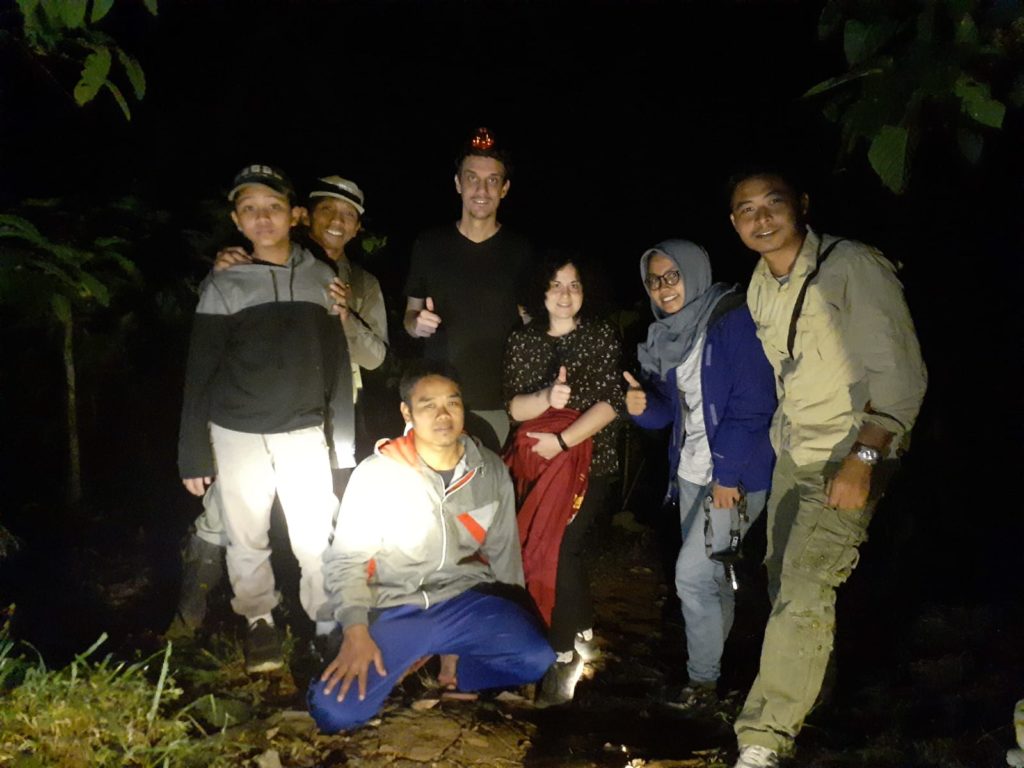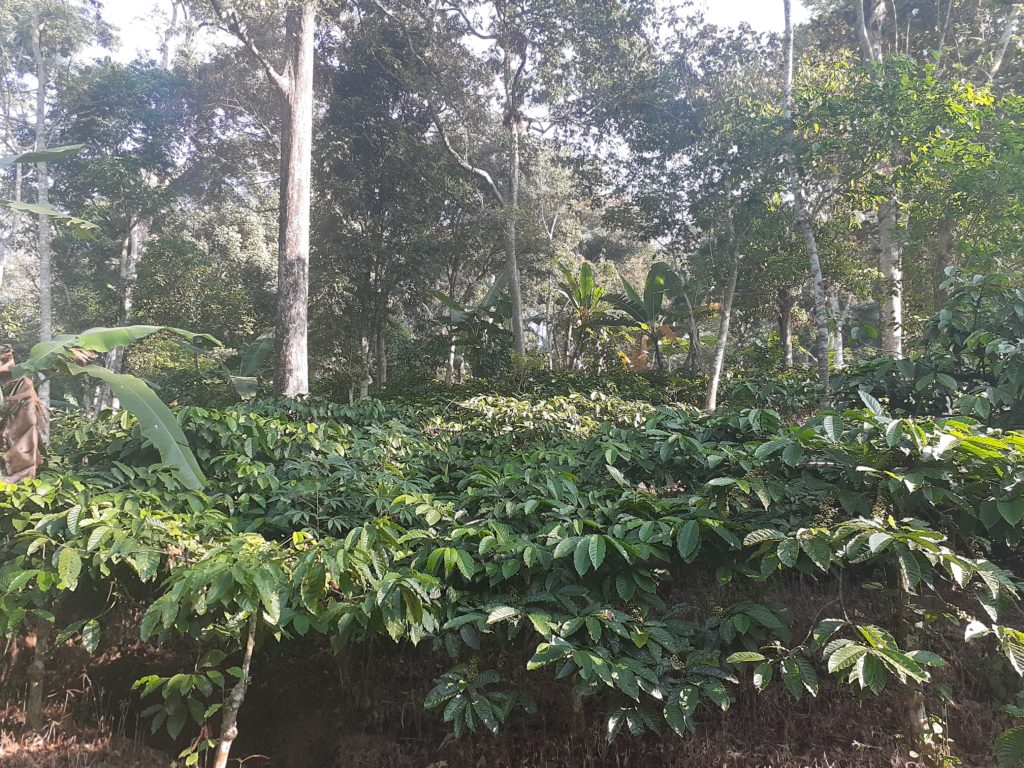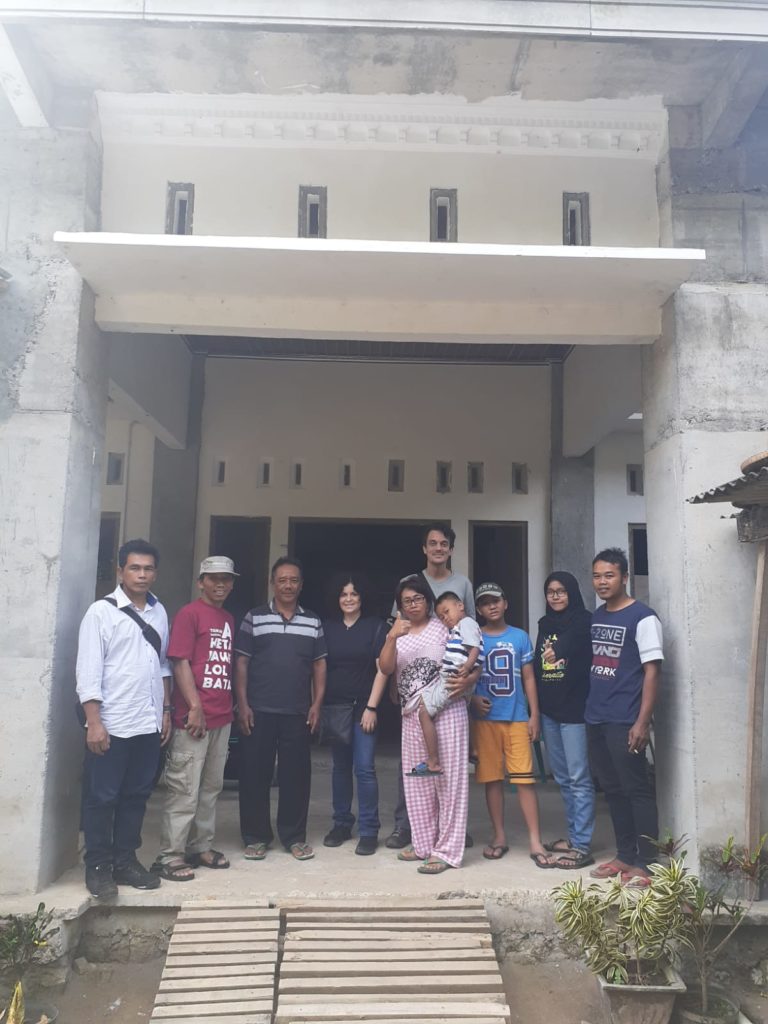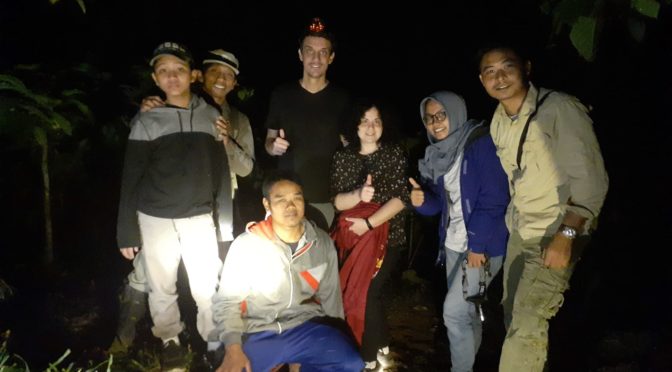At the end of June, Michela and I had the chance to visit Kemuning forest after giving a seminar and a workshop at Universitas Gadja Mada (UGM), our research counterpart. That was an exciting experience and we would like to share some information about Kemuning.

Kemuning forest
Kemuning is a lowland forest (including lowland rainforests patches but also other human-modified habitats) of around 600 ha in Bejen, Temanggung, Central Java, and a fieldsite of UGM. Researchers from UGM started working in Kemuning in 2015 and they studied many wildlife species there including our beloved Javan slow loris Nycticebus javanicus. This forest also includes fun arboreal gliding mammals such as the colugo Galeopterus variegatus that we saw but we did not manage to catch in a picture! But the main peculiarity of this study site, and most interesting part for me and for the coffee project, is that this place is full of shade-tree coffee plantations! Coffee is everywhere under the trees and that, together with the fact that this site hosts Javan slow loris, makes perfect conditions for wildlife-friendly coffee!

The village
In Kemuning forest, there are seven villages quite isolated one from each other, and UGM is staying in a village actually called Kemuning! There is a very friendly family hosting students and researchers in the village, and they also hosted us. Students staying there live like in a family and they can have food and accommodation for a very cheap price, but they also need to help, like in a family! The village is very quiet, very close to the forest, and still having all the facilities (e.g. internet, toilet). I would say it is a very good site for doing research! The only side effect is that with all that coffee under the forest it is very difficult to follow the animals collect observation data.

Wildlife-friendly coffee
As said, Kemuning is a very good site for wildlife-friendly coffee. Also, they have robusta coffee plants, which have less market, but if mixed with arabica coffee can give a very good taste. Robusta is more bitter and usually less intense at taste, while arabica is more fruity and tastier, but can have a very acid aftertaste. Mixing these two coffees creates a mixed blend that can is usually better, as Italian know well – Italian blend is usually 70-80% arabica and 20-30% robusta. Maybe bringing both Cipaganti coffee and Kemuning coffee to obtain the wildlife-friendly certification can be a good strategy? More soon. MARCO CAMPERA

